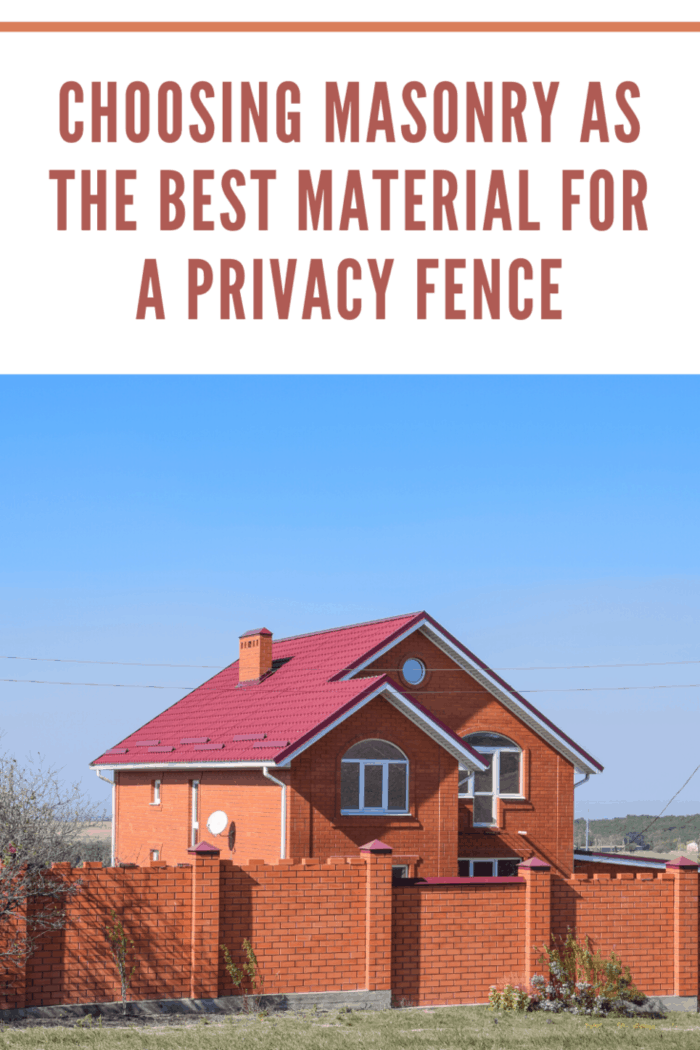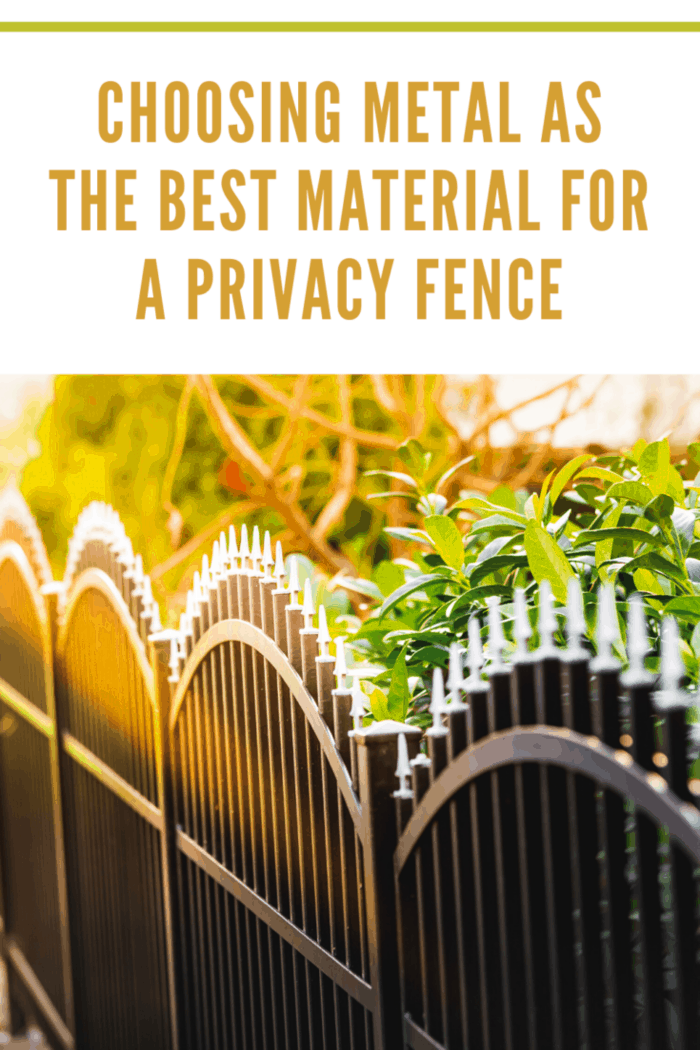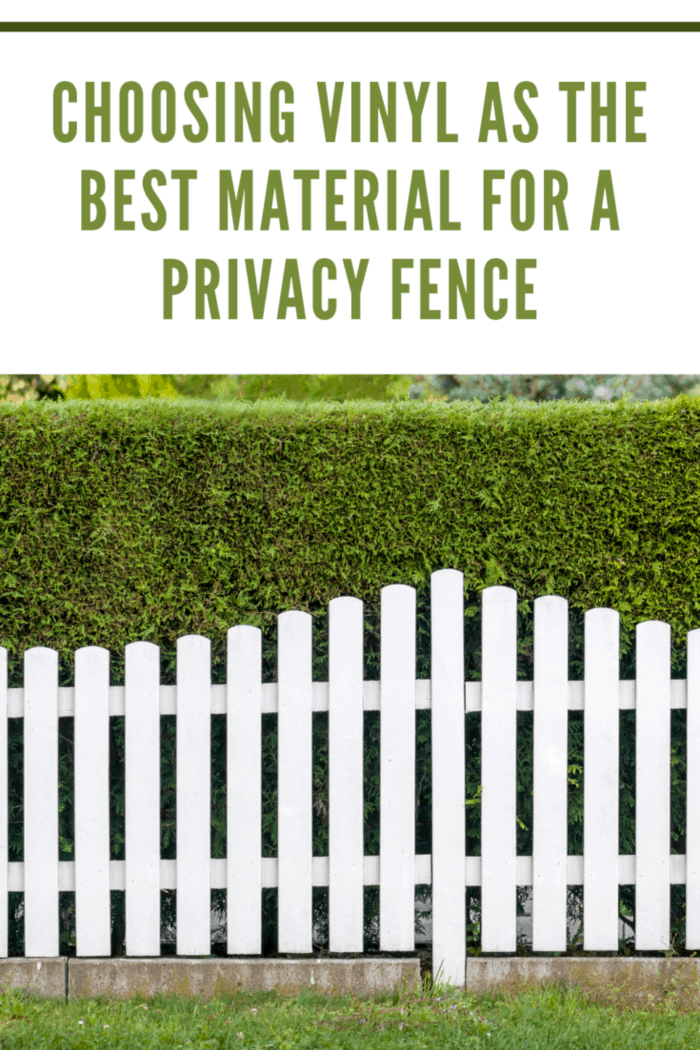Don’t like the idea of your neighbors peeking into your yard (or maybe even through your windows every time they go out to walk the dog? You should install a privacy fence. These tall fences will protect you and your family from unwanted attention, but before you get to work, you have to pick the right material. We’ve put together this guide to help you learn how to choose the best material for a privacy fence.
So let’s get started!
Understanding the Design Limitations of a Privacy Fence
Privacy fences are tall, anywhere from 6 to 8 feet, and they’re designed to keep neighbors and passersby from seeing into your yard.
This limits the materials and styles you can use when designing your fence.
For example, things like pickets or lattice fences won’t add much privacy to your property.
Make sure you spend some to research how to build a privacy fence before you start shopping for materials.
How to Choose the Best Material for a Privacy Fence
Common Privacy Fence Materials
Before you install your fence, you have to pick the right material.
The material you choose will affect the overall cost, the length of the installation, the durability, etc.
Because of this, you can’t always just pick the material you think looks the best.
But this doesn’t mean you go with the cheapest option either.
It does mean; however, you should consider all your options.
Here’s a quick look at some of the most common privacy fence material options.
Wood
Wood is a beautiful fencing material that fits almost any home style.
There are many different types of wood out there, meaning you can install a privacy fence in almost any color.
If you don’t like the look of natural wood, you can change the color with stains or paints.
Wood is also one of the cheapest fencing options out there.
Of course, the exact price will depend on the type of wood you get.
Redwood fences are more expensive than things like cedar fences.

Masonry
This type of fence includes things like concrete, stone, brick, stucco, etc.
These fences are extremely durable, and they don’t require a lot of maintenance.
Once you install them, there’s a good chance they’ll stay standing until you move on to a new home.
However, because of this, these fences are a bit pricey.
If you live in an area that gets a lot of rain, strong wind, snow, and other weather conditions, the extra durability of masonry fences might be worth the cost.

Metal
Metal materials, such as aluminum or chain-linked fences, aren’t as common for privacy fences as some of the other choices on this list.
But that doesn’t mean you can’t use them.
You can install a fence constructed from aluminum panels, complementing a modern home.
Keep in mind aluminum or other metals, such as wrought iron, are some of the most expensive materials out there.
While chain-linked fences are cheap, they don’t protect your privacy well, so you might want to avoid this option.

Vinyl
Vinyl is more expensive than wood fences but cheaper than most masonry or metal fences.
This material is also durable and low maintenance, so it’s a good choice for many homeowners.
It can last over 20 years without any help from you.
You can vinyl in a variety of colors, and you can even install a vinyl fence that has a similar appearance to natural wood.
However, since vinyl is a type of plastic, it won’t have the rustic beauty of wood or masonry.

Composite
Composite fences are like a mix of natural wood fences and vinyl fences.
This material is made of wood fibers and plastics, which gives it a similar appearance to wood with the added durability of plastic.
Because of this, composite fences won’t warp or rot as quickly or easily as normal wood fences.
How to Pick the Best Material for a Privacy Fence
Each type of fencing material has its own set of pros and cons.
So how do you choose the right one for your property?
Here are a few of the things you should consider first.
Budget
Since privacy fences are so tall, they’re already more expensive than other types of fences.
Because of this, you should put together a solid budget before you start shopping.
Knowing how much you can spend on your fence will keep you from looking at (and maybe falling in love with) options that are out of your price range.
If you don’t have a large budget, you might want to stick to cheaper materials, such as wood vinyl.
Style
Think about the style of your home.
You don’t want to install an aluminum fence if you live in a ranch-style home.
Make sure the material home compliments the rest of your property.
Curb Appeal
You want your fence to increase your curb appeal (Investopedia).
What types of fence material do your neighbors have?
What works well in your area? If the rest of the homes in your neighborhood have wooden fences, you might not want to install anything metal.
Maintenance
Before settling on fence material, you must ask yourself how much maintenance you want to do over the years.
For example, you’ll have to refinish wooden fences every few years.
Otherwise, they will start to warp, rot, or get infested with insects.
If you don’t have a lot of time for maintenance, you might want to pick something like vinyl.
The only thing you have to do for a vinyl fence is to keep it clean.
Installing a Privacy Fence Around Your Yard
Picking the best material for a privacy fence shouldn’t be a quick decision.
Make sure you research the different options and weigh the pros and cons against each other.
But if you follow the tips on this list, you’ll have the right fencing material for your property.
Want to learn some other helpful design and landscaping tips for your yard?
Make sure you take a look at the rest of our blog!
